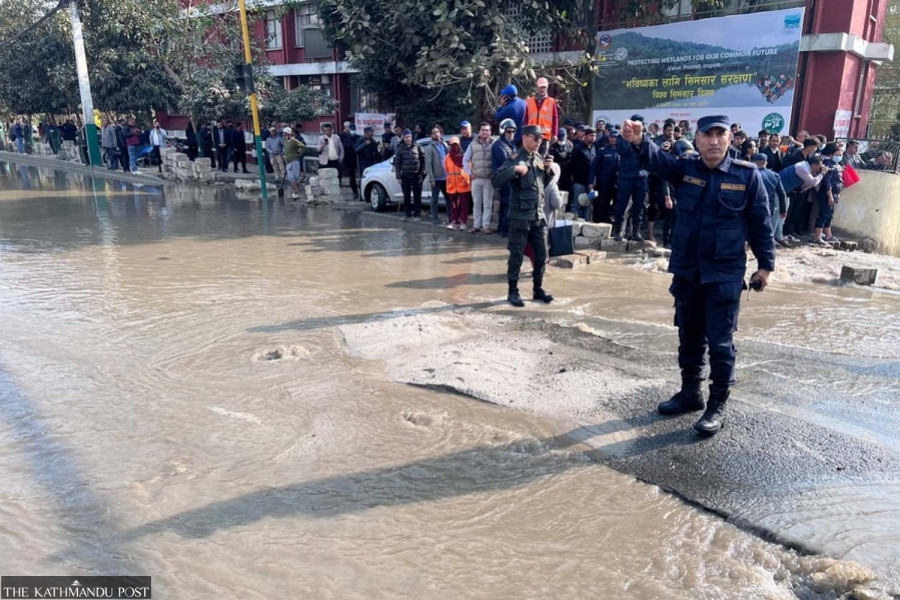Editorial
Comedy of errors
There is misalignment in the efforts of public agencies that should be working together.
When it comes to digging up roads to lay electric cables or water and sewage pipes, the electricity authority, waterworks department and sewage management offices mostly don’t work in tandem. Just as the public sighs with relief when the road department applies fresh asphalt, a construction company enters the scene with a bulldozer or a drill. There is clear misalignment between the works of different agencies, which not only damages our infrastructure but also puts human lives at risk.
This problem is particularly pronounced in the federal capital, Kathmandu. Take the utter carelessness seen in managing the pipelines of the Melamchi Water Supply project. Due to the failure of multiple agencies to work together, the project’s pipes leak in places. But then even the waterworks department doesn’t maintain the roads after checking the pipes or installing new ones. The carelessness of contractors who often leave the projects unfinished exacerbates the problem.
We only need to look at an incident from Wednesday to understand the tussle between these agencies. Reportedly, due to the contractor’s negligence while drilling the road for a Nepal Electricity Authority project to keep the electricity wires underground in Babarmahal area, the Melamchi drinking water supply’s pipe ruptured, flooding and even damaging the road. According to news sources, even as the water supply authority had notified the electricity agency about the pipeline, the contractors working for NEA didn’t heed them, spilling more than 4 million litres of precious water meant for denizens and inundating many government buildings.
This is only a part of the bigger problem. Even though it is mandated that anyone carrying out excavation work must get permission from multiple agencies, including the roads department, local units and others, many—either unaware of the law or indifferent to it—start digging roads on their own, adding to the chaos. Across the country, these unauthorised acts often go unnoticed or unreported. Similarly, every year, the Federal Road Supervision and Monitoring Office issues a notice prohibiting road excavation activities for water, sewage, electricity and telephone during the peak monsoon seasons. Anyone flouting the orders can be punished according to the Public Roads Act 1974, but the penchant for asare vikas, working only at the end of the fiscal year, doesn’t stop.
Negligence in road maintenance puts lives at stake, as many people across the country end up in open manholes and sewers. The local authorities must take the lead in monitoring these unauthorised activities, as the financial burden ultimately falls on them if something goes wrong. As vital is to hold the contractors responsible for shoddy works.
In these matters, the officials often play a blame game—waterworks officials blaming the electricity authorities for poor work and vice versa. This must end. If these activities are coordinated with better inter-agency communication, projects will end on time and the public will be spared a whole lot of trouble. As road maintenance, repair and undergrounding of cable continue in the capital, many other pipes of Melamchi water are at risk of sustaining an even bigger damage. The onus is also on the Ministry of Physical Infrastructure and Transport to better monitor the state of our public infrastructure. It will be impossible to build durable public works with the current fractured approach.




 10.12°C Kathmandu
10.12°C Kathmandu













